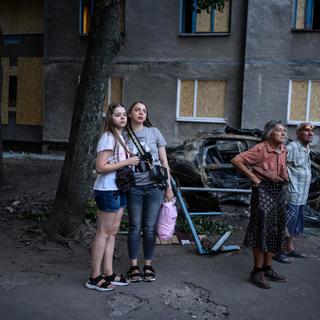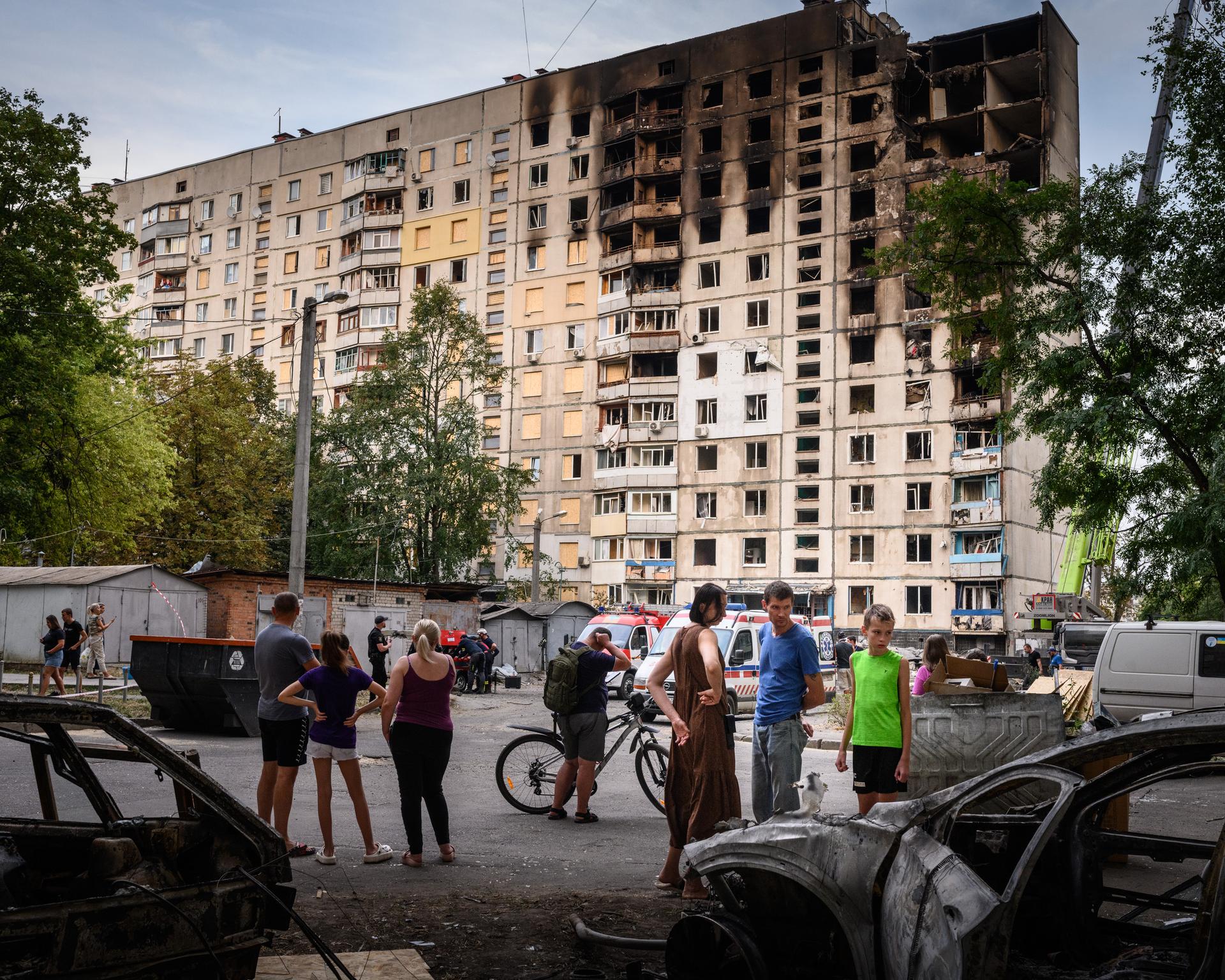


War in Ukraine: In Kharkiv, bombed by the Russian army, 'everyone here has a cousin in Russia'
FeatureMany residents of Kharkiv, where a Russian strike killed five people on August 30, have relatives on the other side of the border, just a few dozen kilometers away. Some are estranged, others are still in touch, but the wounds run deep and families are being torn apart.
Their minds didn't falter for a second, pointing their index fingers without any hesitation. "That way," "Behind the trees there," "Over there."... When it comes to showing where Russia is, no one in this apartment block courtyard has any problems orienting themselves. It was 3:10 pm on Friday, August 30, when a "guided bomb" exploded on building 2D in the Industrialnyi district of Kharkiv, Ukraine's second-largest city. When asked where this device, far more accurate than an air-to-ground missile, came from, everyone in the 2D courtyard pointed in the same direction: East. The border is 35 kilometers away as the crow flies, as the missile flies.
When the strike pierced the afternoon sun and destroyed an entire building a few blocks from where they live, Tetyana was in the "courtyard," as squares surrounded by residential buildings are called here. Her husband, Mykola, was not far away. "Our building shook," said the 50-year-old high school janitor, his palm over one of his ears, still buzzing from the blast. "I thought about my mother, who lives with us upstairs, and I ran up the stairs to make sure she was alright." That day, only building 2D, 150 meters from their own, was in flames. Tetyana, an employee working at the book depot of Vivat, one of Kharkiv's biggest publishing houses, made sure to quickly reassure her family before the news broke on social media. She told everyone except her cousin Angelina, who lives in Moscow.
Angelina grew up in the same neighborhood as her; she also attended the same school, the "119," before moving to neighboring Russia with her husband. But in the spring of 2022, when Putin's army tried to "take" Kharviv, missiles rained down on this urban area of 1.5 million residents, and when Tetyana sent Angelina photos of tanks and destruction, she laughed: These were obviously "fake" pictures. "She wrote to me: 'We'll protect you,'" continued Tetyana. "Since then, it's all over for me. I stopped texting her on WhatsApp and Viber. Russian TV and Telegram channels rotted her brain in no time." The couple noted with a hint of irony that the apartment kept by this same cousin in the northern districts, the most exposed, was never damaged in two and a half years of conflict.

"Everyone here has a cousin in Russia," said her husband, Mykola. Kharkiv is the largest Russian-speaking city outside Russia's borders, as evidenced by the courtyard of building 2D, like so many others in the post-Soviet space. This courtyard is also Eastern Ukraine in miniature, a snapshot of those regions where the stories of families living on both sides of the front lines create even more complex situations than elsewhere in Ukraine – rifts, heartbreaks, peculiar solidarities. Some continue to talk to each other while steering clear of sensitive issues, or else exchanging banalities filled with innuendo: "Say hi to those around you," "Kiss the family," "How's your health?" "Take care of yourselves." Others have ruptured all bonds.
You have 84.97% of this article left to read. The rest is for subscribers only.
